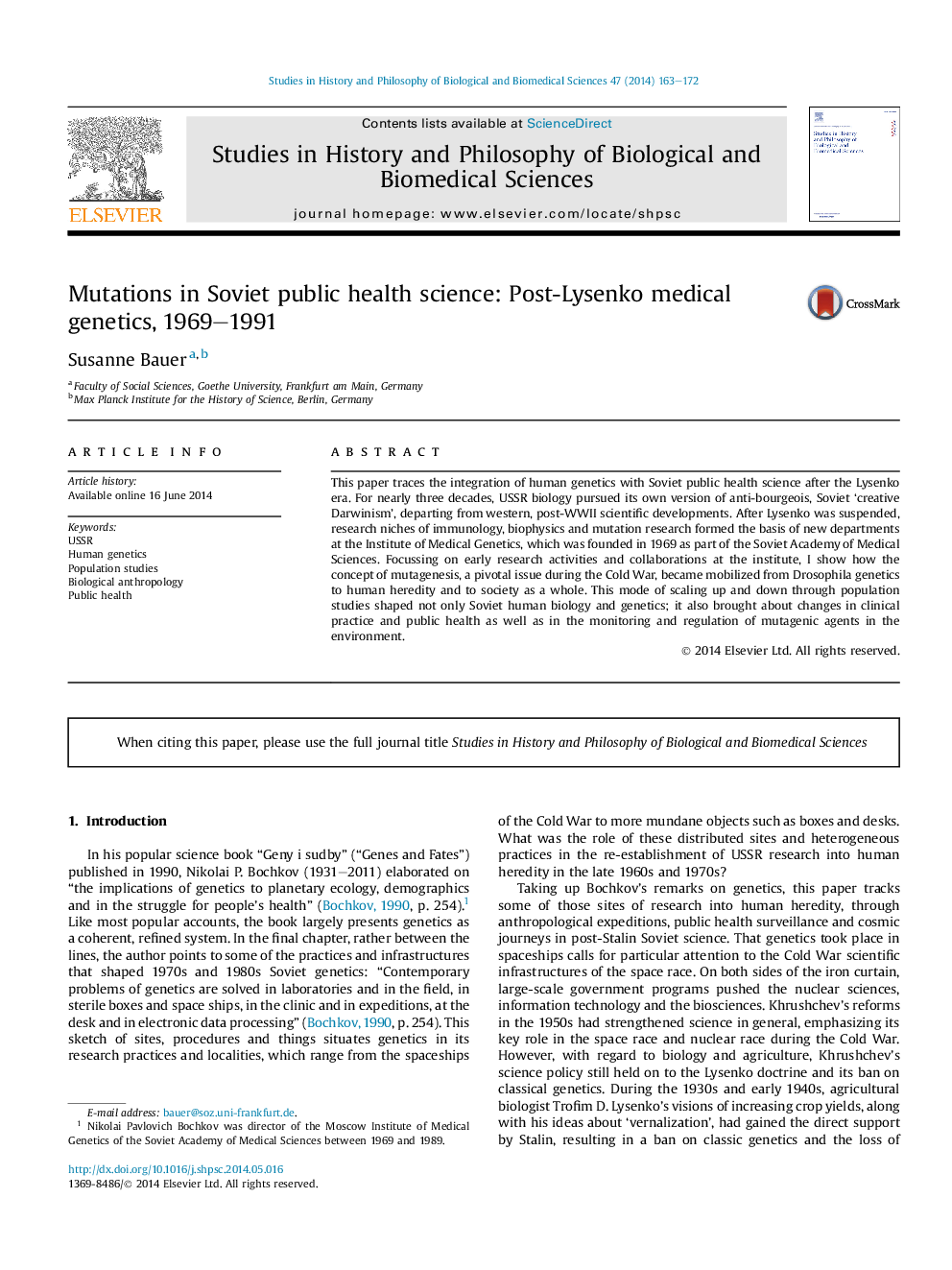| Article ID | Journal | Published Year | Pages | File Type |
|---|---|---|---|---|
| 7552668 | Studies in History and Philosophy of Science Part C: Studies in History and Philosophy of Biological and Biomedical Sciences | 2014 | 10 Pages |
Abstract
This paper traces the integration of human genetics with Soviet public health science after the Lysenko era. For nearly three decades, USSR biology pursued its own version of anti-bourgeois, Soviet 'creative Darwinism', departing from western, post-WWII scientific developments. After Lysenko was suspended, research niches of immunology, biophysics and mutation research formed the basis of new departments at the Institute of Medical Genetics, which was founded in 1969 as part of the Soviet Academy of Medical Sciences. Focussing on early research activities and collaborations at the institute, I show how the concept of mutagenesis, a pivotal issue during the Cold War, became mobilized from Drosophila genetics to human heredity and to society as a whole. This mode of scaling up and down through population studies shaped not only Soviet human biology and genetics; it also brought about changes in clinical practice and public health as well as in the monitoring and regulation of mutagenic agents in the environment.
Related Topics
Life Sciences
Agricultural and Biological Sciences
Agricultural and Biological Sciences (General)
Authors
Susanne Bauer,
